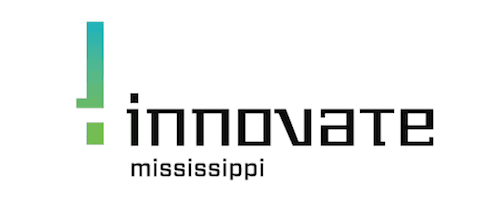 Posted by: Contributing columnist, Clarion-Ledger, Business, December 30, 2015: An event that was barely noticed a few years ago has grown to be a huge event for many Mississippi students — and it’s all centered on computer programming, or “coding.” If you haven’t heard of “Hour of Code,” I’m not that surprised, but the event has grown by leaps and bounds all over the world. Its growth in Mississippi has been pushed in large part by Randy Lynn and Tim Mask with Maris, West, and Baker, who have tirelessly worked to spread the importance of coding to Mississippi students. Randy encouraged his son’s school to become one of the first in Mississippi to offer the Hour of Code to all students, leading them to win a $10,000 award from Code.org.
Posted by: Contributing columnist, Clarion-Ledger, Business, December 30, 2015: An event that was barely noticed a few years ago has grown to be a huge event for many Mississippi students — and it’s all centered on computer programming, or “coding.” If you haven’t heard of “Hour of Code,” I’m not that surprised, but the event has grown by leaps and bounds all over the world. Its growth in Mississippi has been pushed in large part by Randy Lynn and Tim Mask with Maris, West, and Baker, who have tirelessly worked to spread the importance of coding to Mississippi students. Randy encouraged his son’s school to become one of the first in Mississippi to offer the Hour of Code to all students, leading them to win a $10,000 award from Code.org.
Nearly 200,000 schools worldwide just participated in “Hour of Code”, including 284 officially registered schools in Mississippi. Several other schools participated informally or did other events, so the actual number of participating schools was even higher. Mississippi’s two charter schools did a Saturday hack-a-thon competition as their participation, for example, but since Midtown Public Charter School and ReImagine Prep both have daily coding classes for 100 percent of their 5th and 6th graders and this was their 3rd hackathon in 4 months, it’s hard to tell how this wasn’t just an average week for those two schools.
So what is all of this buzz about coding? Most of these students probably won’t be coders, after all, so is coding’s place alongside reading, writing and arithmetic really a good thing?
I think it is a very good thing, but I’m more than a little biased. My first introduction to “coding” was when my mom became a computer teacher when I was 10 years old. She had been a programmer in the punch-card days of the 1960’s, so when Clinton High School wanted to start a computer programming class, she was given one of the schools newfangled TRS-80 Model I computers to take home for the summer and told to figure out what a high school computer class should be about.
When she wasn’t on it, I had a new computer and several computer programming books at my disposal. Despite those “Trash 80’s” not even having a hard drive and using a cassette tape for storage, I was hooked. By the time the movie “War Games” came out a few years later, we had a TRS-80 Model III with a 5 ¼ floppy drive and I had all the computing power a 14-year-old could ever need. (At least in 1983.)
I learned in the BASIC programming language, and while I later learned other languages, all of those languages were useless a decade later, just like the Scratch and Tynker codes students are using today aren’t going to be the codes they see in their careers. Even knowing that fact, though, the exercise of coding teaches the most fundamental elements of learning that makes all students better at facing life. Those elements include the ability to logically break down a problem into smaller specific tasks and to problem-solve using creativity to create various solutions to the same problem.
Teaching coding is important, but it’s relatively easy with today’s coding languages made for various student levels. Most importantly, a very small amount of instruction can give a student the tools they need to solve a very wide array of problems and the chance to test how they can approach and solve a problem in a different way than before. Hackathons are really nothing more than a competition to solve an open-ended problem in the best way possible. Students are participating in — and winning — hackathons with just a few hours of instruction because just a few tools can then be used with their creativity to create unique solutions.
Events like Hour of Code are succeeding because parents and students understand that coding is an essential element of learning today and a critical skill for the future —even for careers where coding isn’t used at all. The critical thinking skills learned through the process of learning to code, though, will provide the foundation for many of the important skills they need in life.
Sadly, while events like Hour of Code have been exploding, computer programming is actually not taught in Mississippi schools as broadly as it was 10 or even 20 years ago. I hope that’s a trend that is starting to be reversed, and I see signs that it is. I hope every Mississippi school tries to participate in next year’s Hour of Code.
Congratulations to the 284 Mississippi schools that served their students well by participating this year.
Tony Jeff is the president and CEO of Innovate Mississippi. He can be reached at tjeff@innovate.ms.
